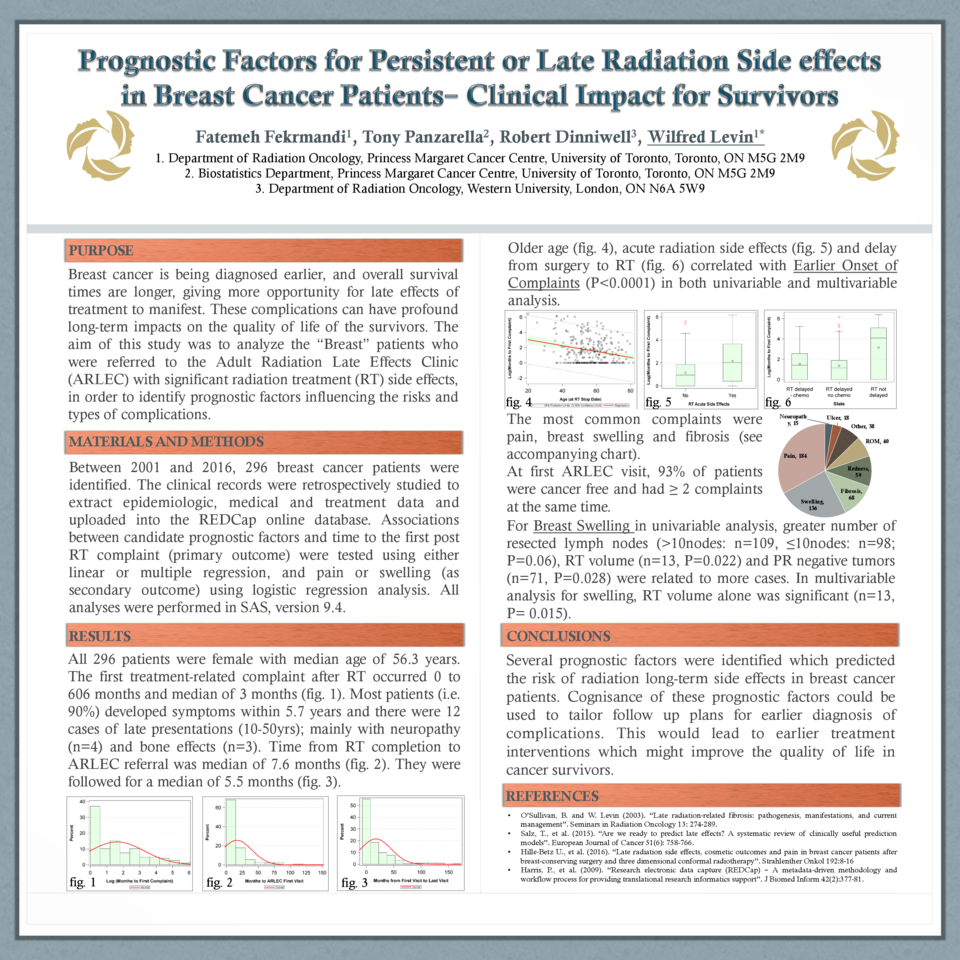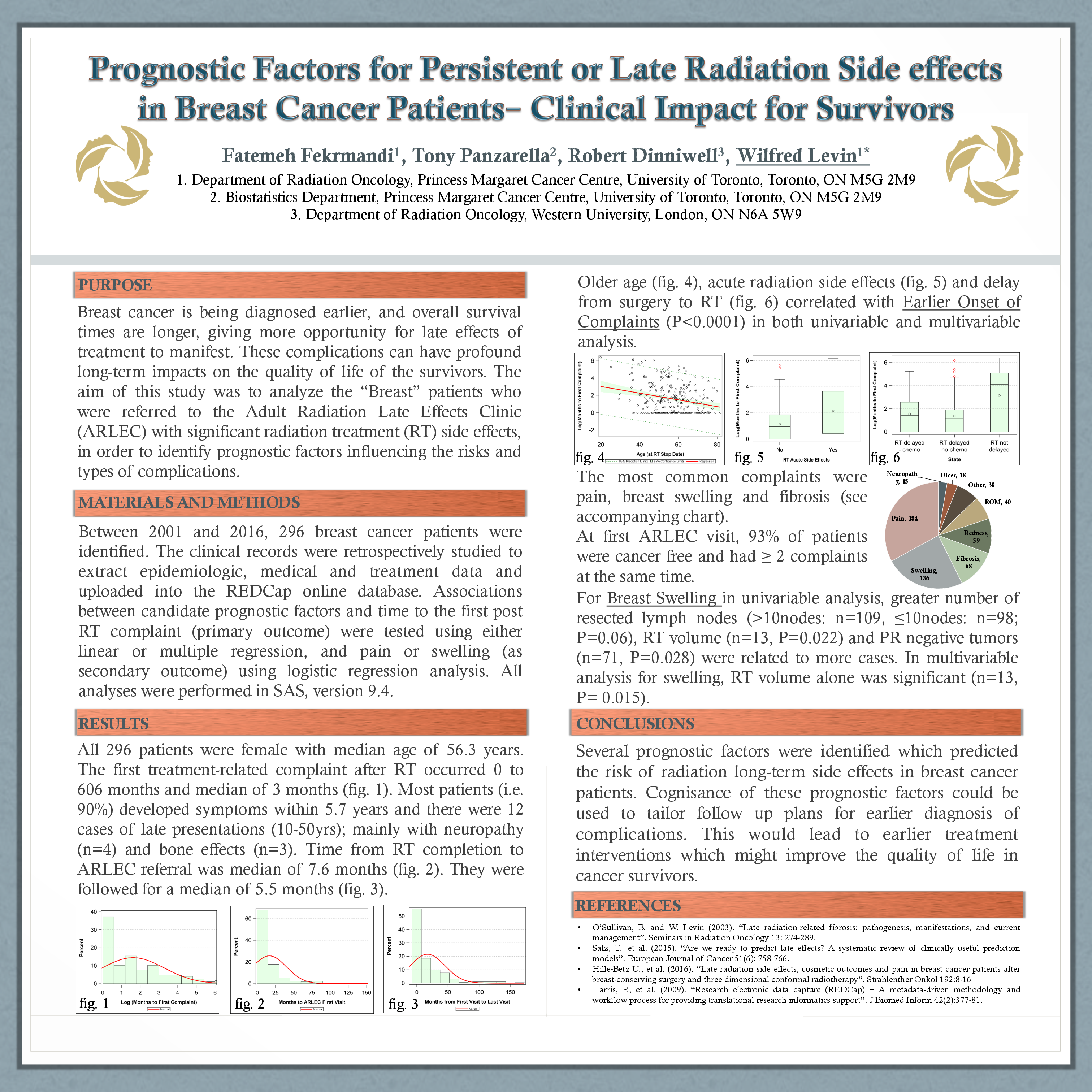Abstract
Purpose
Breast cancer is being diagnosed earlier, and overall survival times are longer, giving more opportunity for late effects of treatment to manifest. These complications can have profound long-term impacts on the quality of life of the survivors. The aim of this study was to analyze the patients who were referred to the Adult Radiation Late Effects Clinic (ARLEC) with significant radiation treatment (RT) side effects, in order to identify prognostic factors influencing the risks and types of complications.
Materials and Methods
Between 2001 and 2016, 296 breast cancer patients were identified. The clinical records were retrospectively studied to extract epidemiologic, medical and treatment data and uploaded into the REDCap online database. Associations between candidate prognostic factors and time to the first post RT complaint (primary outcome) were tested using either linear or multiple regression, and pain or swelling (secondary outcome) using logistic regression analysis. All analyses were performed in SAS, version 9.4.
Results
All patients were female with median age of 56.3 years. The first treatment-related complaints occurred after median of 3 months. Patients were referred to ARLEC within median of 7.6 months and followed for a median of 5.5 months. Older age, acute radiation side effects and delay from surgery to RT correlated with earlier onset of complaints (P<0.0001) in univariable and multivariable analysis. The most common complaints were pain (62.1%), breast swelling (45.9%) and fibrosis (22.9%). RT for metastasis or recurrence was associated with more cases of pain (P=0.011). Greater number of resected lymph nodes (P=0.06), RT for metastasis or recurrence (P=0.022) and PR negative tumors (P=0.028) related to more cases of swelling/induration.
Conclusions
Several prognostic factors were identified which predicted the risk of radiation long-term side effects in breast cancer patients. Cognisance of these factors could be used to tailor follow up plans for earlier diagnosis of complications. This would lead to timely treatment interventions to improve the quality of life in cancer survivors





